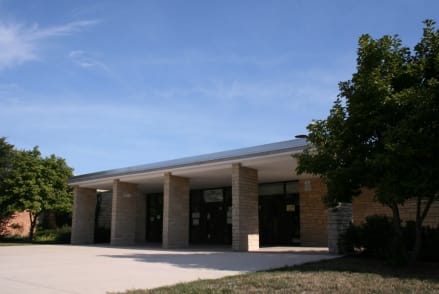The Challenging Learning Process (CLP) supports a culture of organizational growth, leading to shared ownership, distributed leadership and a culture of collaborative learning and collective efficacy. The process is made up of continuous action learning cycles that are shaped through a collaboration between the school and Challenging Learning (CL). The process is fully supported by CL, but is driven by the school and is focused on specific aims that are tailored to the needs and vision of the school. It includes evaluation of impact, ongoing monitoring and a comprehensive structure which ensures sustainability. In West Aurora, the following aims were crafted based on a desire of assistant superintendent Brent Raby for "teachers to be enthused in their craft" and the desire of students and teachers to rediscover "the joy of learning":
1- A culture of challenge for all learners
2- Students who are able to make lasting meaning of their learning
3- Students are independent and resilient learners.
The work in West Aurora began in the spring of 2019 when administrators and teachers on the leadership team began collaborating with consultants from CL to plan and design the project. The first 4 schools rolled out in earnest in August with their first training day. I have made two visits to one of the schools in the first wave, Hall Elementary School. During the first visit in September, I was able to observe model lessons being taught by CL consultant Lisa Cook. Lisa taught a class from Hall while the teacher teams observed and discussed what they were seeing. The dialogue among the teachers was incredibly rich as they enthusiastically shared ways they could make changes to their instruction.

Today was my second visit to Hall Elementary and I was blown away! I visited classes at all levels and saw a variety of subjects, but in every class I could clearly see that they were focused on shifting the talk from teachers to students, to incorporate deeper thinking and challenge, and to develop a common, shared language around learning. The students in the classrooms were engaged, supportive of one another, and motivated to participate and learn.
I was able to sit down with the principal, Zak Fitzenreider, and the Assistant Superintendent of Operations, Angie Smith to hear about the journey at Hall. Mr. Fitzenreider shared with me that prior to the CLP, they were seeing 4-5 behavior referrals a day in the office, but now they only see about 1 a day, if that. They were also engaging in multiple CPI supports per week for students who were physically out of control, and they have not had one incident requiring CPI support this year.
According to Mr. Fitzenreider, the environment is now set up such that it feels inappropriate to the students to misbehave. Mrs. Smith added that students were misbehaving because they were not engaged and did not care if they had to leave the classroom to go to the office, whereas now they do not want to leave the classroom and risk missing anything. Prior to the CLP, many staff members believed that they needed to address the social emotional concerns first before attempting to tackle instruction and academics. What they now realize is that by enriching their instruction, they have significantly reduced the number of actual concerns in that area. As they shifted their focus to the delivery of universal challenging instruction instead of the behaviors, they were no longer engaged in power struggles.
An instrumental part of the CLP, which helped the staff at Hall to truly integrate Social Emotional Learning and academic learning, is the ASK (Attitudes, Skills, and Knowledge) model. Simply focusing on attitudes and developing the attitudes that allow students to effectively build their skills and knowledge provided a connection between SEL and academics.
Another advantage of the CLP is purely academic. Mr. Fitzenreider shared that they had already put significant work into developing excellent curriculum materials based on essential questions and supported by well developed resources, but that they were not seeing the impact of the curriculum. He now realizes that they were missing the context for the "why". The CLP has allowed them to embed a common language around learning and a shared understanding of the meaning of learning. They are now seeing the impact of their curriculum work.
Mr. Fitzenreider indicated that this has been an easy sell to the staff and that he has had no resistance. In fact, the structure of the CLP, which allows the educators to work a their own pace as they focus on one aspect of the learning culture at a time, has led to teachers who are much happier and who are fulfilled by the success they are seeing in their classrooms and in the building as a whole. Mrs. Smith agreed, saying that for her it was an easy sell because it is a much better use of district dollars given the impact they are realizing. The CLP is a school improvement process that encompasses all aspects of the learning culture and includes all stakeholders, eliminating the need for additional dollars to be spent on ancillary processes or programs.
Hall is not the only school in West Aurora experiencing success. The school district saw the value and impact experienced by the original 4 schools and is now adding 5 more schools. I was fortunate enough to observe portions of the baseline visits to 2 of the additional schools and I was pleased to see that some of the principles of Challenging Learning were already being cultivated, even before starting the process.
The CLP is unlike anything I have seen, and I truly believe it is what we need in order to make the long term changes necessary to create school cultures that challenge ALL students while preparing them for a future that is constantly changing. We need to disrupt the "way we have always done things" and I believe this process does just that.
No comments:
Post a Comment